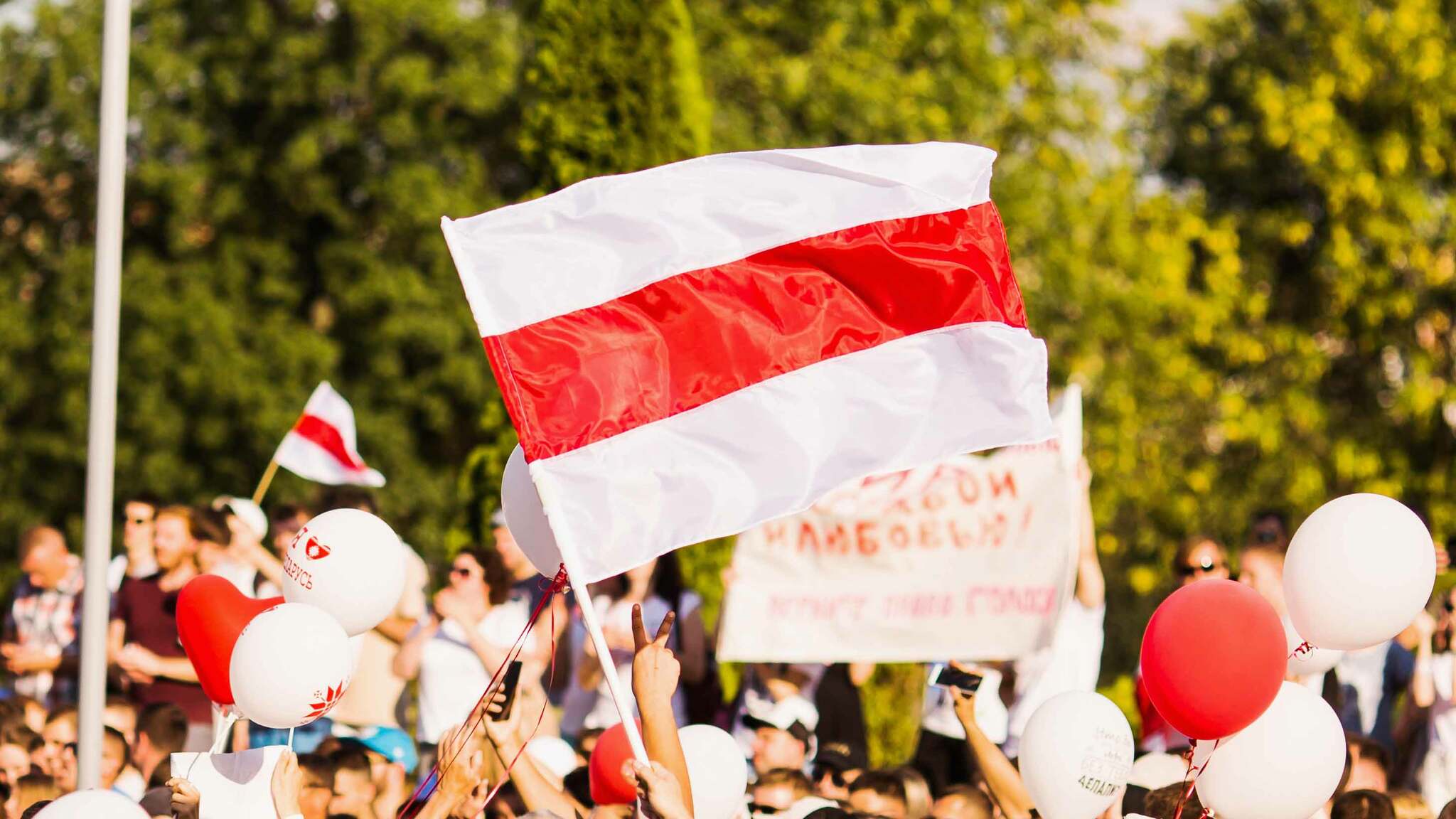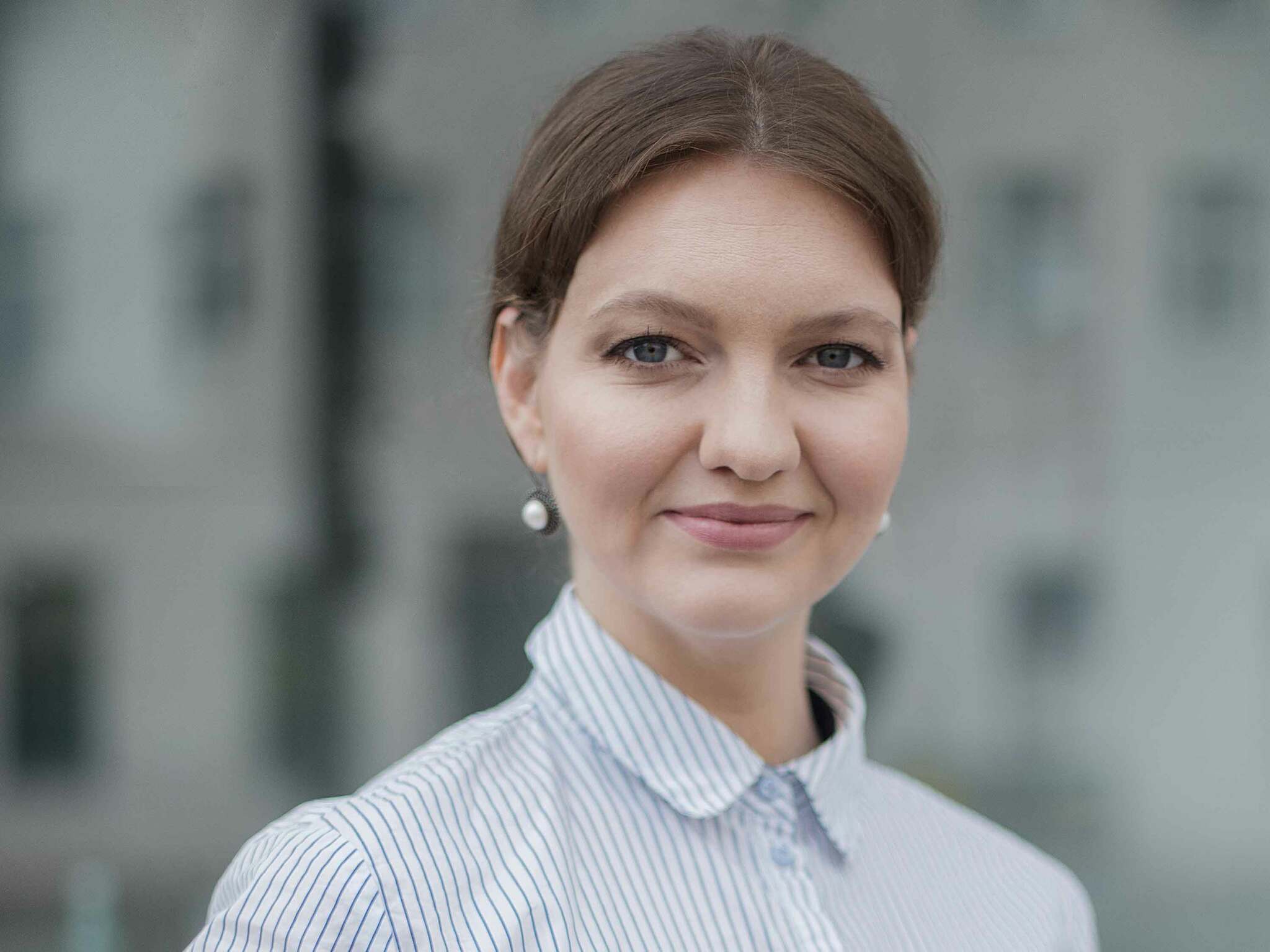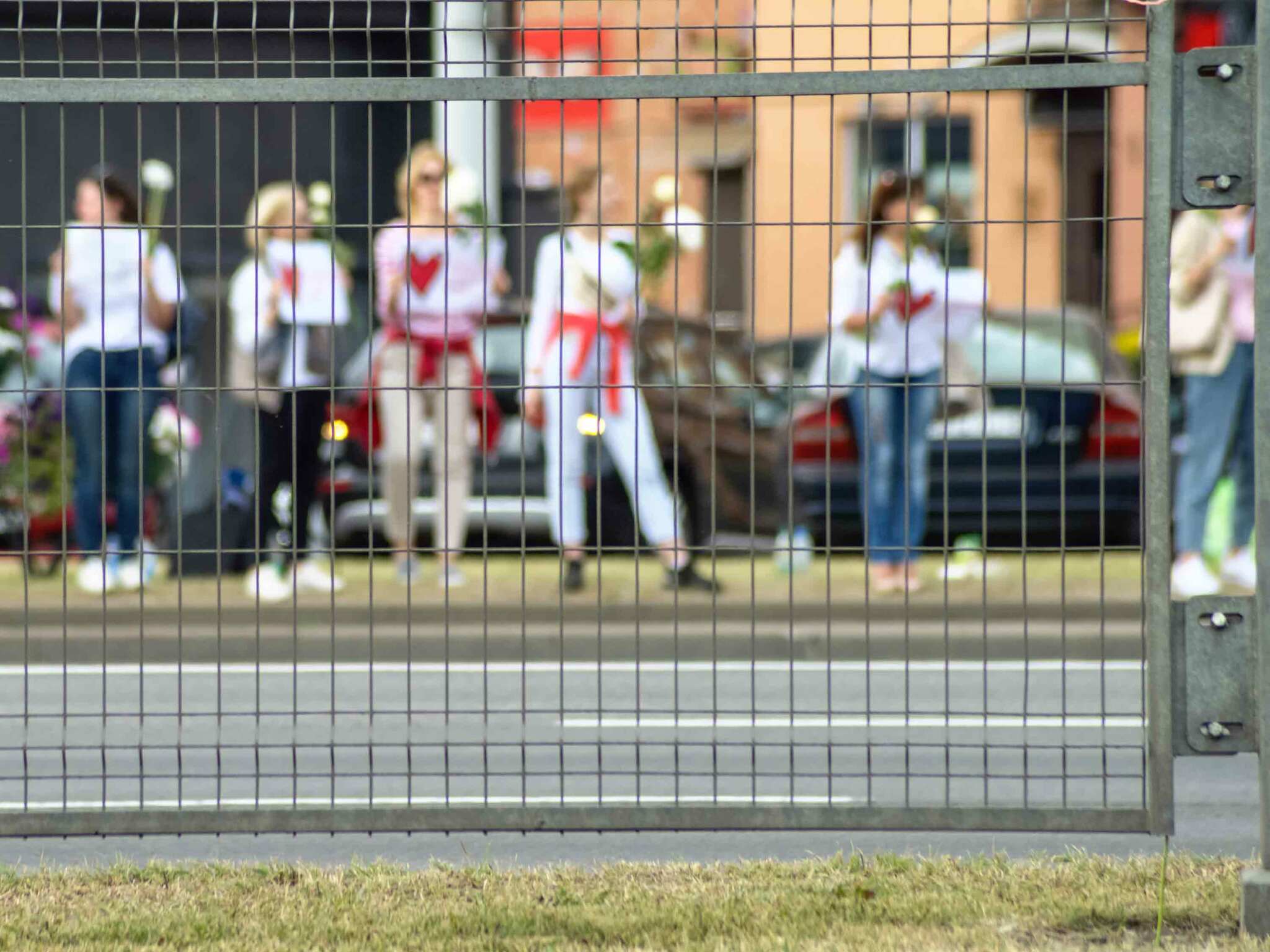
© AdobeStock / iiievgeniy
A Symbol of Bravery
The protests in Belarus continue despite the government’s repression.
Olga Dryndova is an important expert on Belarus – former “White Russia”. The political scholar works for the Research Centre for East European Studies at the University of Bremen. We asked for her assessment of the situation and the perspectives in the country.
There is an oppositional movement in Belarus at the moment which is being watched by the whole word. It seems that the movement is made up of brave women at the top, many young people from the cities, and a few workers from individual factories. What is the heart of this mass movement in your opinion?
It is a rather spontaneous initiative that has no strong, sustainable structure. There is no political central unit that leads the protests on the streets. The people in Belarus are organizing it all themselves. They have quickly learnt to communicate via social media channels, especially Telegram. The coordination board that was formed in order to demand dialogue with Lukashenko, consciously tries to represent many social classes and civil agents in society – including the winner of the Nobel Prize for Literature, Svetlana Alexievich. That is how the opposition’s election campaign was formed – the traditional political party opposition hardly played a role. Criminal proceedings against the coordination board have been initiated. This shows that the government does not view this structure as being legitimate. The 72-year-old Svetlana Alexievich is the last person who has not been arrested or been forcefully deported. Several members of the coordination board are in Poland, have been threatened, and have left the country – not all of them voluntarily. Maria Kolesnikova was arrested and the authorities wanted to deport her. She tore up her passport at the border and then stated that she had been threatened with murder.
Why is it mainly women who are standing at the forefront?
They have become symbolic figures of the protests. There were three potential candidates with good chances, but they were not even allowed to be nominated as they were too much of a danger to the system. The women that stood behind these men decided to carry on. That is a symbol of solidarity for the people in Belarus but also a symbol of bravery, as it is seriously dangerous to initiate such an election campaign in an autocratic country.

© Natalia Lipchanskaya
Is the way opposition is dealt with currently changing?
Yes, deportation is a new aspect. In the past, there were indeed protests after elections, but they only lasted a few days and were usually organized by the oppositional parties, who were not as popular and did not manage to mobilize the general public. It was the case that candidates were arrested after the elections, but it is new that they are being forced to leave the country. That is connected to the fact that the government is trying to discredit them in the eyes of those who are protesting. They want to show that they are cowardly and do not want to stay with their people bur rather are being funded by other countries. Or that they did not do it all for their country but for their career. That is the message that the government TV channel is sending out in Belarus. But that is not plausible for most people. They understand that pressure is being put on the women.
The protests have been continuing for a long time: Why is that?
There are long-term reasons on the one hand: The economic situation has taken a turn for the worse in the past years and has become more dramatic thanks to the pandemic. Additionally, people have not felt protected by the government during the pandemic. The dissatisfaction with the lack of measures to stop the virus and with Lukashenko personally was great. Then the presidential election campaign began. Something entirely new happened: Two popular candidates did not come from the opposition party but from the elites. A well-known YouTube blogger wanted to be the third candidate. This appealed to different target groups. Many well-educated people were unhappy with Lukashenko. It was actually irrelevant for who you voted. It was just important that you voted against Lukashenko. That is also something new for Belarus: Voting as a means of protest instead of remaining silent. It seems that this is how a former housewife without a political agenda received the majority of votes. That was a strong indication of how tired the people were of the president.

© AdobeStock / sergeimelnikov
How were people mobilized?
The mobilization of the people was successful due to the fact that is was not stated that “the regime is bad,” but rather that “the people are good.” That seemed naïve to many experts. But I immediately thought that that is a great message to communicate: You will make it! No-one before them had said that. What we are now seeing is the consequence of the empowerment that stems from this trio of women. They told citizens that they should make use of all legitimate mechanisms, for example handing in complaints or watching the election themselves. This initially seemed naïve because a state under the rule of law does not work in an autocracy. But it contributed to the circumstance that people began to read laws and to understand what you are allowed to do as a citizen of the country. This involved many people who were not politically active beforehand.
There were also short-term reasons: The electoral fraud that the people were able to see with their own eyes. And the repression, of course. What happened, this mass torture, is unprecedented.
What do you believe to be realistic perspectives for the opposition in Belarus?
The government is now trying to begin a parallel dialogue with society and to enforce constitutional reform. Apparently, the president’s power is to be restricted by means of a referendum and new elections are to take place in a few years. Those in charge do not want to talk to the new opposition but want to start discussions – or to put it better, sham discussions – with pro-government organizations. We have also heard from Russia that the coordination board is not legitimate. But I do not believe that society will accept that.
But you still remain optimistic?
Define optimistic. I do not believe that Lukashenko will manage to remain in power for five years again – he admitted this himself. The question now is really how and whether with violence or with dialog. That depends on several factors. How long the protests continue, how the elites behave. Naturally, it is also dependent on Russia. Without Russia, Lukashenko would no longer be in power.